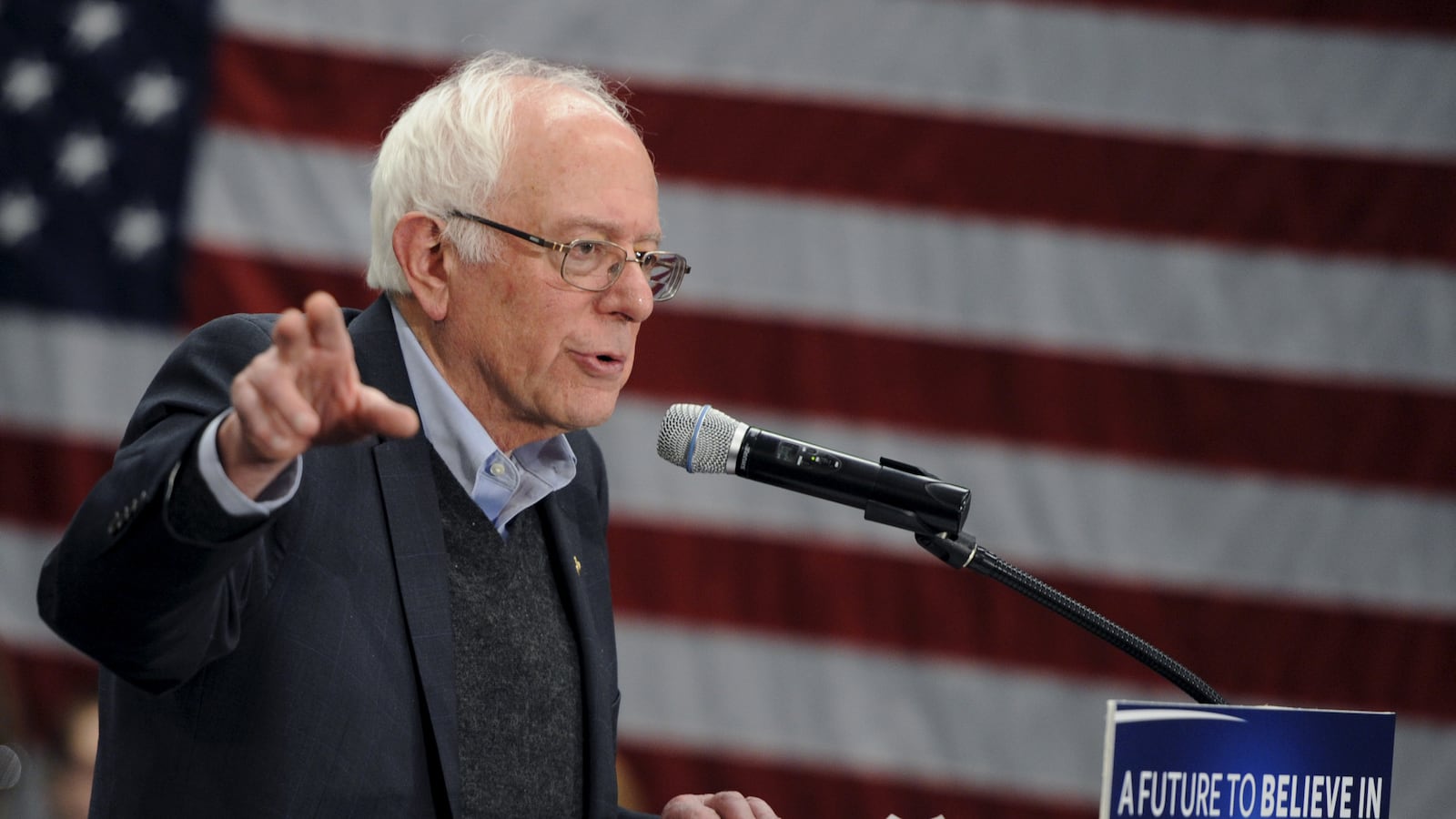Before you ask if Bernie Sanders can win the White House, before you ask if he can topple Donald Trump or Ted Cruz, before you wonder if he can actually beat Hillary Clinton, you must ask yourself this:
Can Sanders win South Carolina?
If that answer is “no,” then Sanders should fold his tent, go home and be content with leveraging his considerable base of support to effectively “move” Hillary Clinton to the “left” on key issues. South Carolina is the fourth state on the presidential primary calendar and, arguably, carries more weight than the preceding contests combined.
Unlike Iowa or New Hampshire, the Palmetto State primary race is 56 percent black.
While it’s true that Nevada also boasts a more diverse electorate, with Hispanics representing about 28 percent of the Nevada population, turnout may prove anemic. Millennials make up almost half of the Latino vote in 2016 and are believed to be among the least reliable to show up on Election Day. In a state where unions are crucial, white working-class voters still rule the day. Then too, the Sagebrush State is home territory for Sen. Harry Reid, whose politics more closely align with Clinton’s than Sanders’s. In other words, don’t look for a progressive revolution in Nevada.
The Clinton campaign has run the calculus and clearly understands the math. Donors won’t like it and volunteers may be disheartened, but losing Iowa and/or New Hampshire wouldn’t break the back of the campaign. However, losing South Carolina would demand a full-scale re-set at a time when Team Clinton can least afford it. Thus, significant resources are being poured into the state to create a “firewall.” The odds are certainly in her favor, at this point.
To win a race down South, in the Clinton homeland, Sanders must broaden his already sizeable coalition. Doing so means shoring up support among African Americans—a group that not only consistently votes Democrat, but also rarely splits among candidates in any statistically significant way. As a voting bloc, we tend to unite behind a single contender.
It should be said that the Sanders campaign has set out to defy Conventional Wisdom and has developed what one senior South Carolina Democratic called a “stunningly strong ground operation.” In recent days, state Rep. Justin Bamberg switched his support to Sanders after first backing Clinton. Bamberg is the family lawyer for Walter Scott, the 50-year-old motorist who was killed by Officer Michael Slager last spring. In the run-up to the late February primary, others are expected to join the ranks and formally endorse Sanders. And it was only weeks ago that state Sen. Marlon Kimpson spoke proudly of Sanders’s support for comprehensive gun control legislation the lawmaker sponsored in the wake of the Emanuel AME Church massacre.
Sanders, who was once mocked on social media with the hashtag #BernieSoBlack, has spent recent months meeting with key influencers in the Black community. In the wake of #BlackLivesMatter protests that interrupted his speech at the 2015 Netroots Nation convention, Sanders re-tooled his efforts and has begun to talk about race straight-on rather than simply relying on economic arguments.
It’s proven a difficult habit to break, but these days Sanders talks less about his history of marching with Dr. Martin L. King and more about persistent inequities in the criminal justice system. He has offered a comprehensive platform on racial justice that address policing in non-white communities, mass incarceration, voting rights, economic disparities, and environmental justice. Princeton University professor Cornel West, former Ohio state Senate minority whip Nina Turner, and rapper Killer Mike have all joined him on the campaign trail.
Will that be enough? Probably not.
Heading into the Feb. 27 primary, Clinton is thought to hold an insurmountable lead among Black voters, who favor her over Sanders by a four-to-one margin. It’s worth noting that she was beating then-Sen. Barack Obama in the polls by double in 2008, but lost South Carolina in a stunning upset. Some believed the racial tensions that erupted during that state contest and President Bill Clinton’s crime bill and welfare reform policies would hurt Clinton this year. That hasn’t panned out in any measurable way and, if it had, no other candidate has been able to exploit that weakness. That said, any comparison between Sanders and Obama—as candidates and as leaders of their respective movements—is fool’s gold.
There were many factors at play, but none greater than this: President Obama had history on his side. Black South Carolinians not only liked what they heard, but also who they were hearing it from. For them, he was kinfolk. But Sanders is more like your mother’s brother-in-law that you just met at the family reunion.
Sanders has done a better than decent job firing up young Black voters. He’s become hip-hop’s favorite old white dude and for the first time some are strongly considering his candidacy. He’s now clocking in at 30 percent in South Carolina, having started the race there in the single digits.
Certainly, Iowa, New Hampshire, and Nevada remain important for Sanders in terms of maintaining the momentum he currently enjoys. However, he must prove, once and for all, that he is a credible candidate for the nomination and for the general election—and that means winning a substantial share of African-American voters.
That could make South Carolina a showstopper. The winner there—whether Clinton or Sanders—is likely to walk away with the nomination.






